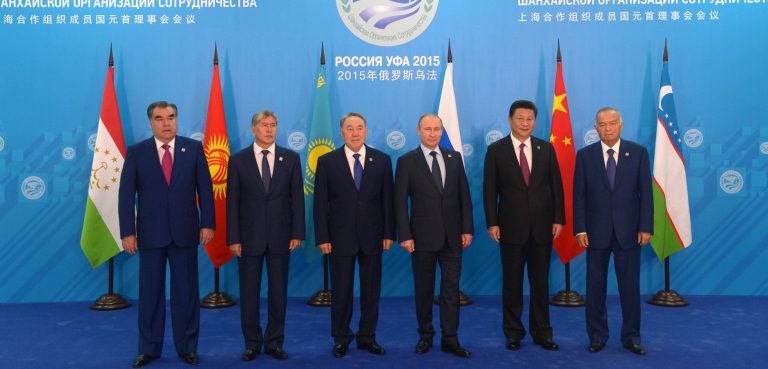Since 2010, civil society and non-governmental organizations (NGOs) in Hungary have gone from existing in a resource-scarce environment to one of government pressure, coercion, and targeted attacks. Shortly after the declaration of the US-led “War on Terror” in 2001, countries around the world adopted new and coercive policies targeting civil society, the operations of the so-called “third sector,” with new restrictions on factors critical for the survival of NGOs and their operations. Since that time, governments around the world have assumed newer and stricter regulations regarding NGO funding and funding sources, transparency and accountability, political configurations, and relationships with other government and non-governmental bodies beyond state borders.
Repressive measures against civil society have undergone drastic maturation processes since 2001. Measures of repression and co-option are part-and-parcel to the cultivation of increasingly tense and hostile environments within state borders, and have been observed in both developing and developed countries alike. While countries such as Russia and Turkey, for example, have recently had the uncivil society spotlight cast upon them, Western countries, the United States and United Kingdom for instance, have also contributed to the acculturation of a global environment hostile toward civil society through strict national security measures. The primacy of their roles were strengthened through the pursuit of international terrorist and criminal organizations after 9/11, the advent of which coincided with a sharp turn in government attitude and treatment of domestic and international NGOs.
With more than a dozen NGOs having been “blacklisted” by the government over the past several years, the list of organizations regarded by Fidesz as countering the national (security) interests of Hungary continues to grow.
This environment, while negatively impacting civil society in developed states, has been caustic for NGOs struggling not just to operate but also to stay alive in lesser-developed countries (LDCs), including non-consolidated or new and emerging democracies, and countries heavily reliant on foreign aid and other forms of external support. Since 2010, Hungary’s ruling Fidesz (Magyar Polgári Szövetség or Hungarian Civic Union) party has implemented measures that have culminated in a constrained and even hostile environment for civil society and NGOs, thus extending this backdrop to Central Europe and a region occupying a position within the European Union (EU). Measures and actions undertaken since 2010 have played a pointed role in the direct and systematic targeting of organizations regarded and labeled by the ruling party as “foreign agents” that promote fundamentalist or extremist views.
Government attacks against NGOs reached a feverish pitch in 2014, when Fidesz systematically attacked NGOs and the Norway European Economic Area (EEA) Grants program funded by Norway, Liechtenstein, and Iceland. The campaign began with rhetorical attacks against NGOs with the intention of damaging or destroying their reputations, but eventually led to several police raids on NGOs, and the seizure of personal property including computers as well as files and documents. 2015 presented renewed government efforts to discredit NGOs in the wake of the “refugee crisis” when Fidesz attempted to stigmatize NGOs either working in the fields of migration and asylum, or working with NGOs offering assistance to large numbers of refugees after entering Hungary predominantly through its southern border with neighboring Serbia. It was at this point that Hungary declared a state of emergency in an effort to address its proclaimed “migrant crisis.”
In December 2016, Hungary’s Prime Minister, Viktor Orbán, openly stated his intentions to eliminate Soros influence in Hungary. However, pressure on civil society and NGOs in Hungary have preceded Orbán’s 2016 declaration. Extensive auditing procedures, for example, have required NGOs to shift their human resources to fulfilling reporting criteria to the government. This author’s fieldwork, in which several hundred NGOs were surveyed, elucidates the increased operational costs associated with the government’s auditing measures. The shift detracts from their day-to-day operations and has limited their human resources. Several program officers explained that in some cases months worth of time and work were detracted from their primary operations. Most NGOs in Hungary are composed of only a handful, sometimes one or two, paid full-time staff members, who then rely on volunteers for further assistance. Government pressure has also come in the form of financial restrictions and the passing of an “anti-foreign NGO” law in April 2017 – essentially a carbon copy of Russia’s 2012 “foreign agent law” seeking to shut down so-called “undesirable” NGOs – obliging NGOs to register as “foreign supported” or “foreign funded” if they receive more than $26,000 USD per annum. Failure to disclose their foreign funding sources can have severe consequences, including the termination of the NGO.
Government labeling of NGOs can have long-term negative effects, noted an executive director of an NGO working in the field of democracy, transparency, and anti-corruption, by resonating in the minds of individuals within Hungarian society and being compounded by subsequent government attempts to discredit and tarnish the image of the “third sector.” Fidesz’s anti-NGO rhetoric, and efforts to deface the Hungarian-born American philanthropist George Soros and the Open Society Foundations’ (OSF) work to promote democratic societies, have helped foster a small but palpable anti-NGO culture in Hungary. Defamation of NGOs by the government can have dangerous effects given the lack of legal channels through which to respond. The discrediting of civil society and NGOs, whether through government rhetoric, websites, or national referendums, can help to produce a negative image of organizations by linking them to other threats within the country or threat from abroad. People retaining an inadequate awareness about NGOs can become easily and permanently suspicious about the sort of work that takes place in the “third sector.”
Fidesz’s Vice Chairman Szilárd Németh made a public statement in January 2016 calling for the OSF and its partners to be “swept out” of Hungary, signaling the beginning of new efforts to crackdown on civil society in a country ruled by what has been referred to as a hybrid or semi-authoritarian regime. Budapest’s Soros-funded Central European University (CEU) came under fire by Fidesz in April 2017 with legislation that sought to close down the institution indefinitely. Ambitious initiatives of this nature are valuable instruments for testing the limits of Fidesz’s power within the country as well as public reactions. Németh underscored the need for Hungary to resort to all available tools to increasingly resist civil society and social movements linked to Soros and Western or “foreign” funding and interests.
Hungary has recently introduced a range of new counter-terrorism initiatives including the Hungarian Counter Terrorism Centre (Terrorelhárítási Központ [TEK]) and the Counterterrorism Information and Criminal Analysis Centre (Terrorelhárítási Információs és Bűnügyi Elemző Központ [TIBEK]), and has proscribed the Hungarian police forces with extensive reach that overlaps with that of national intelligence authorities. Fidesz has officially and effectively linked NGOs to issues of national security such as money laundering, illegal migration, and international terrorism, and extremism. With more than a dozen NGOs having been “blacklisted” by the government over the past several years, the list of organizations regarded by Fidesz as countering the national (security) interests of Hungary continues to grow. Attracting particularly negative attention by the ruling party are NGOs working in areas sensitive to the government. NGOs focusing on anti-patriarchal dimensions of society, transparency, anti-corruption, minority rights, migration, and LGBTQI+ have received particularly negative attention. The continuity of government calls for increased transparency also continues to provide a strong justificatory basis for assuming a more aggressive posture toward civil society in Hungary, and is being fueled by the type of international terrorism and national security narrative seen elsewhere within and outside of Europe since 9/11 and the advent of the “War on Terror.”
The material context is a major backdrop to this situation in Hungary. NGO financing can be seen as the historic “Achilles heel” of the civil society sector in a country where civil society, civic associations, and volunteerism have shallow and particularly fragile root systems. The so-called “Golden Age” of civil society passed at the turn of the millennium with the resource scarce environment strained further still by government crackdown on NGOs that have the ability still to contest aspects of the ruling party’s power in Hungary. Ideological interpretations of the role of civil society and NGOs are also a key component in Hungary’s anti-organized civil society and NGO character. Government spokespersons have linked NGOs with migrants and migration, the threat of terrorism and flow of terrorists, and the concept of extremism in various forms, such as ideas about the role of liberal institutions, and as the Fidesz party stated, over-interpretations about rights and freedoms, including human rights. This mixture has in other countries led to the systematic and strategic co-option of civil society.
Government actions have fallen in line with the ruling party’s visions for the creation of an illiberal state within the EU, and are congruent with national rhetoric as well as the planning and implementation of illiberal legislation and policy in Hungary. This relationship has led to a situation whereby NGOs and the organized aspects of civil society have become deeply politicized and securitized, so much as that they have been positioned alongside threats to national security, and inexorably linked to views of extremism and terrorism. Although it would be too convenient and simple to connect these events and suggest that the same strategic co-option and crackdown of civil society in the name of counter-terrorism has begun to take place in Hungary, the events have the potential for piecing together with the broader narrative highlighting the harmful character of the “War on Terror” in the context of civil society.
The opinions, beliefs, and viewpoints expressed by the authors are theirs alone and don’t reflect any official position of Geopoliticalmonitor.com.




